Is Air Conditioning Safe for Infants and Young Children?
There is a common concern among parents over whether it is safe to expose infants and young children to air conditioning. The underlying belief is that their bodies are delicate and less capable of tolerating and adjusting to the cool air.
If the child is in good health, born at term, and weighs at least 3.5 kg, their body has sufficient fat to regulate their body temperature and keep warm. The baby’s thermoregulation mechanism is also functioning properly, allowing them to sleep comfortably and safely at the same room temperature as adults.
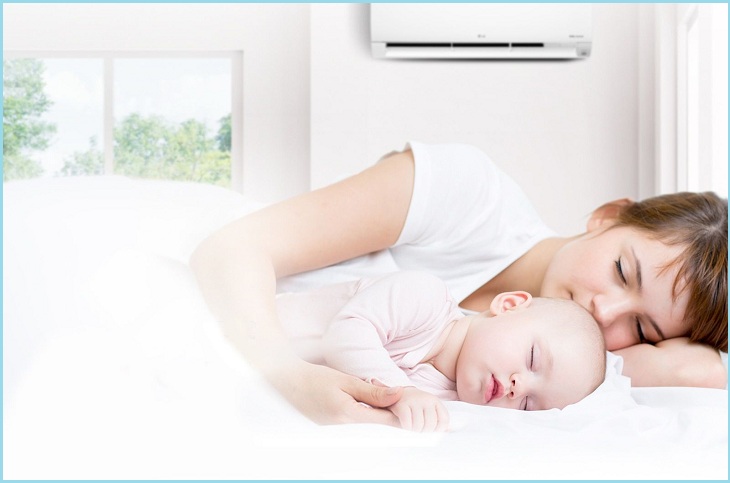
In contrast, overdressing a child and using excessive blankets can pose a greater danger to the baby. For premature babies weighing less than 3.5 kg, it is advisable for parents to delay the use of air conditioning until the baby reaches 1-2 months of age, considering the baby’s developmental progress.
How to Properly Utilize Air Conditioning for Infants and Young Children
Ensuring Optimal Temperature in the Hall
Young children, especially those under the age of three, frequently struggle with adaptation and are particularly sensitive to sudden fluctuations in weather and temperature. This susceptibility is due to the underdevelopment of their thermoregulatory organs and sympathetic nervous system, which leaves them more susceptible to respiratory illnesses.
In order to prioritize the health and well-being of children, it is important for parents to be mindful of the temperature setting when using air conditioning. For children under the age of 3, it is recommended to maintain a temperature range of 26-28 degrees Celsius when they are appropriately dressed in clothing, gloves, socks, hat, and covered with a blanket.
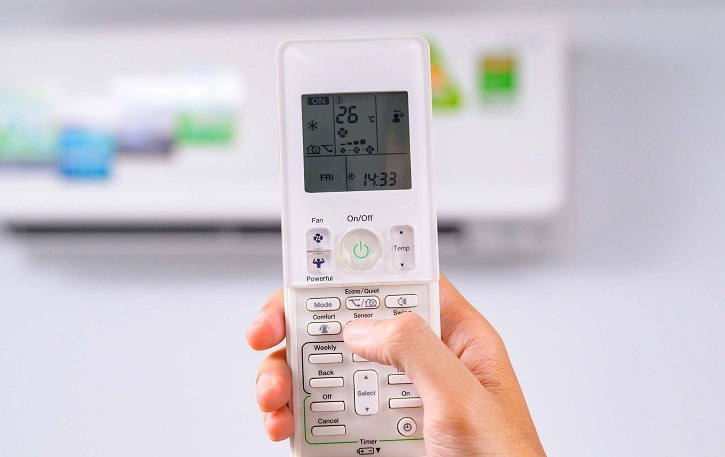
If the room temperature exceeds 28 degrees Celsius, it can lead to excessive sweating in children and increase the risk of sudden infant death syndrome (SIDS), which is the unexplained sudden death of infants aged 1-12 months. To mitigate these risks, it is important for parents to gradually lower the room temperature until the child is comfortable and no longer sweating or restless.
WHO Advises Against Sudden Exposure to the Outside Environment
Exposing a child to significant changes in temperature can potentially result in heat shock, leading to symptoms such as fever, cold, and cough. As a precautionary measure, it is advisable to avoid sudden transitions from an air-conditioned environment to the outdoors.
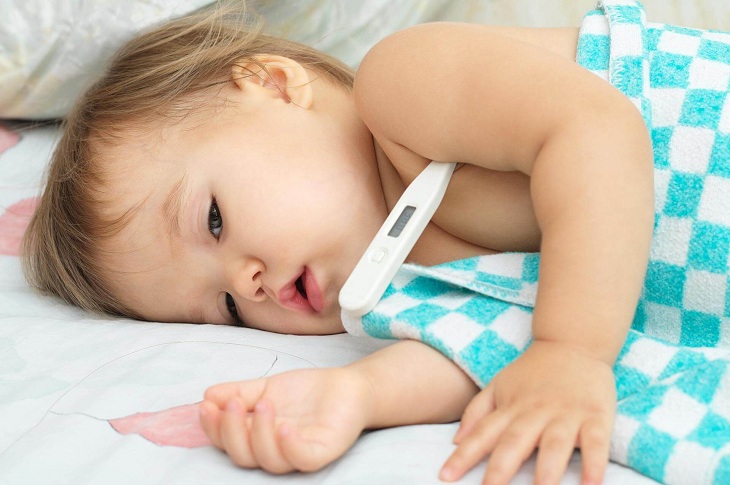
To ensure the child’s comfort and adaptation to the outdoors, it is recommended to disable the air conditioning and allow them to remain in the room for 10-15 minutes. This gradual exposure to rising room temperature will facilitate a smoother transition. Once the room temperature aligns with the outdoor conditions, it is safe to venture outside with the child.
Avoid Leaving Air Conditioning On For Over 2-3 Hours
Mothers should limit the baby’s time spent lying down to no more than 2-3 hours at a time. Consequently, every 2-3 hours, it is advised that the mother takes the baby outside to a moderate temperature for a duration of 10-15 minutes. Additionally, this opportunity to refresh the air and allow sunlight into the baby’s room is highly recommended.
Encourage the Child to Stay Hydrated by Drinking Water
Extended exposure to a cold environment can result in the child’s body losing water and the skin becoming dry. Dehydration in children can lead to weakness, lowered immunity, and an increased likelihood of constipation. Consequently, it is crucial for parents to ensure their child stays adequately hydrated when spending time in an air-conditioned room.
Proper hydration of the body can be achieved through the consumption of various nourishing fluids including filtered water, milk, fruit juice, soup, and more.
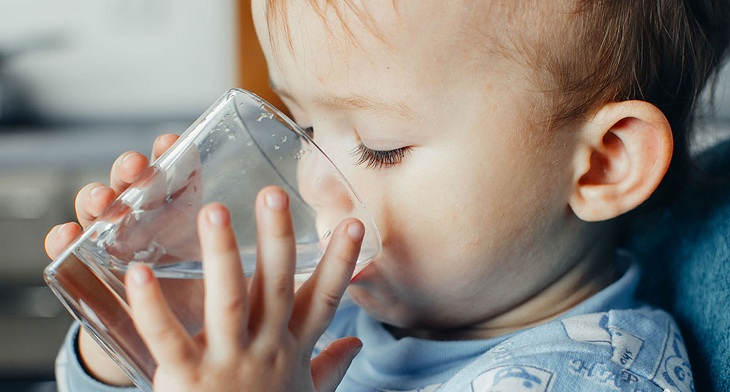
Avoid Directing Air Conditioner Fan Towards Child
Exposing a child’s underdeveloped respiratory system to direct airflow from an air conditioning fan can have harmful effects on their health. This practice increases their vulnerability to respiratory ailments such as cough, runny nose, pneumonia, bronchitis, and similar conditions. It is advisable to avoid directing air conditioning fans towards young children to protect their well-being.
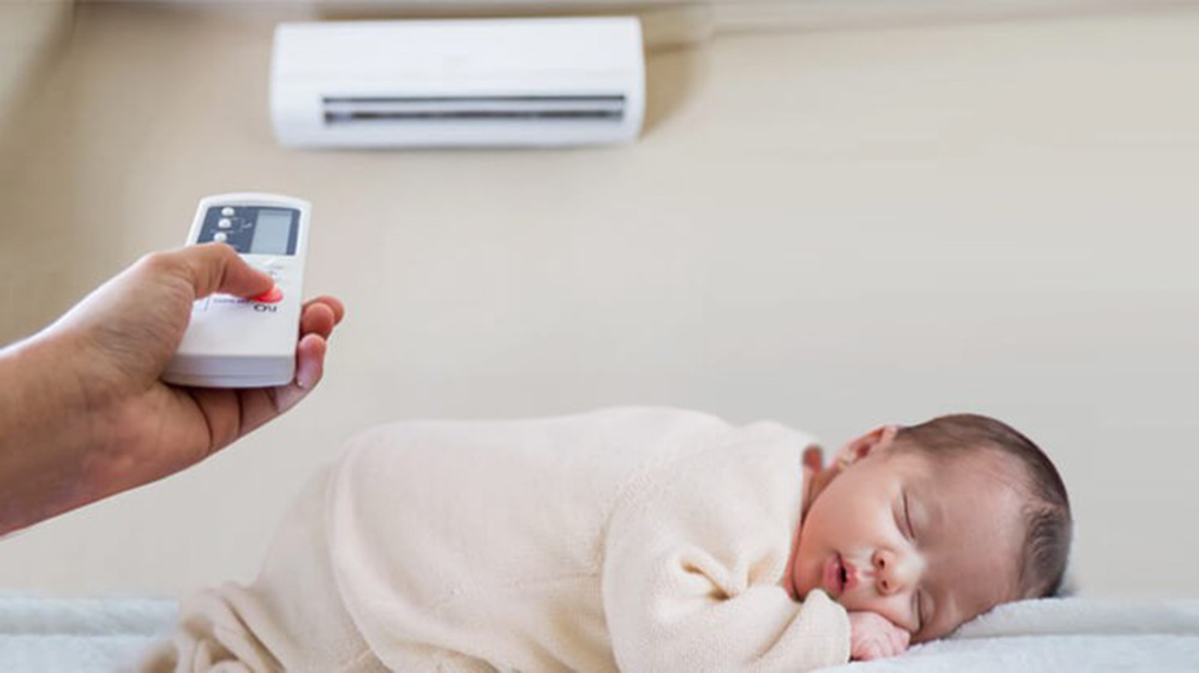
The air conditioning unit should be mounted in a high position, ensuring that the air flow vents do not directly face the sleeping child. To optimize comfort and safety, it is recommended to set the unit to the lowest fan speed and activate the oscillation mode.
How to Improve Sleeping Habits by Upkeeping Cleanliness in the Bedroom
Ensuring cleanliness in the bedroom is paramount to safeguarding a child’s well-being. Parents are advised to prioritize cleaning and periodically maintaining the room’s air conditioning unit to effectively mitigate the growth of harmful mold and bacteria, which can pose potential health risks.
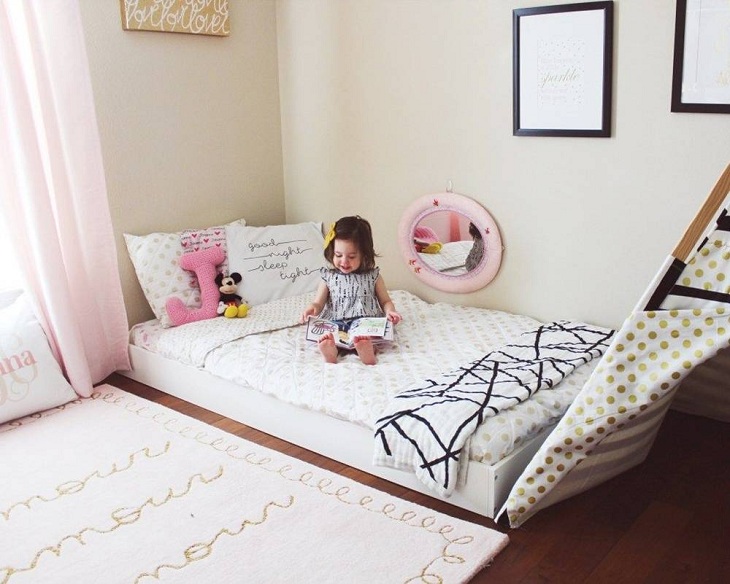
To optimize humidity levels in your bedroom, there are several effective approaches you can take. One option is to utilize a humidifier, specifically designed to increase moisture in the air. Another alternative is an air humidifier, providing similar benefits. Alternatively, placing a bowl of water in the room can also help increase humidity levels.
How to Maintain Cleanliness of Air Conditioning System Through Regular Cleaning
Regularly cleaning the air conditioning unit in addition to maintaining a clean bedroom can effectively remove trapped dust and mitigate the risk of respiratory diseases.
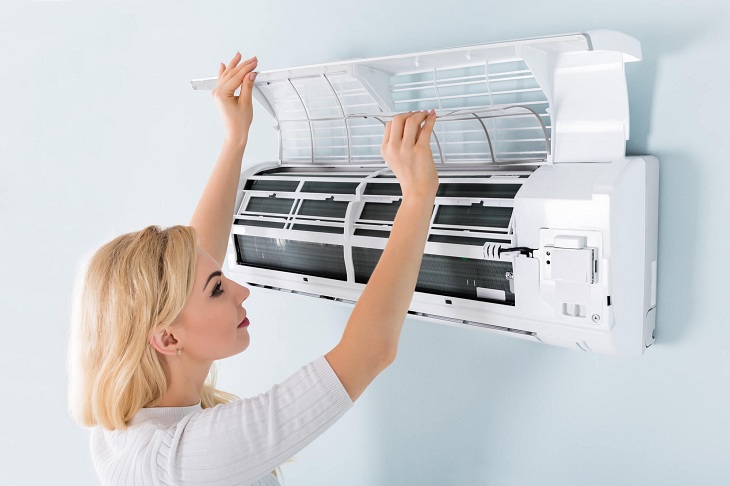
Proper maintenance of your air conditioning system is crucial for ensuring clean and healthy air. One important step you can take is to regularly clean and reinstall the air conditioning dust filter. By doing so, you can effectively remove dust and other impurities from the air, resulting in a cleaner and healthier environment. Make sure to follow the manufacturer’s instructions and reinstall the filter in its original position for optimal performance.
Additionally, it is recommended to provide air conditioning units in the child’s room that offer a comfortable airflow mode. This will help prevent the child from potentially experiencing heat shock due to extreme cold temperatures, ultimately ensuring the child’s well-being.
The content of this article has been sourced from vinmec.com, a reputable medical website. The advice provided in this article comes from Associate Professor, Doctor Huynh Thoai Loan, who serves as the Head of Pediatrics and Neonatology Department at Vinmec Central Park International Hospital.
Using the information provided above, we strongly encourage responsible use of air conditioning to safeguard your baby’s well-being. Visit us for expert guidance in selecting the right air conditioner models for young children!


































